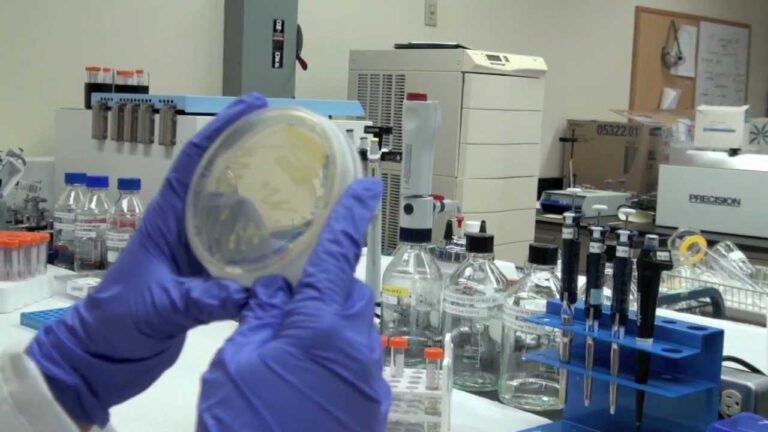Exploring Life: Biologist Job Description & Salary

Biologist Job Description Template
Biologist Job Description A biologist is a scientific professional who studies living organisms and their interactions with the environment. They conduct research, perform experiments, and analyze data to gain a deeper understanding of various biological processes. Biologists can specialize in different subfields such as microbiology, zoology, botany, ecology, and genetics. The primary responsibility of a biologist is to conduct research in their area of expertise. They often work in laboratories, conducting experiments and analyzing samples. They may also work in the field, collecting data and studying organisms in their natural habitats. Biologists use advanced scientific equipment and techniques to study the structure, function, and behavior of organisms. Another important aspect of a biologist’s job is to document and publish their findings. They write scientific papers, present their research at conferences, and collaborate with fellow scientists. This helps in disseminating knowledge and contributing to the advancement of scientific understanding. Biologists also play a crucial role in conservation efforts. They study endangered species, assess the impact of human activities on ecosystems, and work towards finding sustainable solutions to protect biodiversity. They may work in collaboration with government agencies, non-profit organizations, and research institutions to develop conservation strategies and policies. In addition to research and conservation, biologists may also have teaching responsibilities. They may teach courses at universities, mentor students, and supervise research projects. In summary, a biologist is a scientist who studies living organisms, conducts research, analyzes data, and publishes their findings. They contribute to the understanding of biological processes, work towards conservation efforts, and may have teaching responsibilities.Biologist Responsibilities
Biologist Requirements
How Much Does A Biologist Make?
Biologist Salary
| Level | Experience | Salary |
|---|---|---|
| Entry-Level | 0-2 years | $40,000 – $50,000 |
| Mid-Level | 2-5 years | $50,000 – $70,000 |
| Senior-Level | 5+ years | $70,000 – $100,000 |
A biologist’s salary varies depending on their level of experience. Entry-level biologists with 0-2 years of experience can expect to earn between $40,000 and $50,000 per year. Mid-level biologists with 2-5 years of experience typically earn between $50,000 and $70,000 annually. Senior-level biologists with 5 or more years of experience can earn between $70,000 and $100,000 per year. These salary ranges are subject to change based on factors such as location, industry, and employer.
Biologist Salaries by Country
Top Paying Countries for Biologist
| Country | Average Salary (USD) |
|---|---|
| Switzerland | 110,000 |
| United States | 93,000 |
| Australia | 80,000 |
| Germany | 75,000 |
| Canada | 70,000 |
Biologists in Switzerland earn the highest average salary of $110,000 per year, making it the top paying country for this profession. The United States follows closely with an average salary of $93,000, while Australia, Germany, and Canada also offer competitive salaries ranging from $70,000 to $80,000 per year. These figures reflect the demand for skilled biologists and the value placed on their expertise in these countries. Biologists in these top paying countries can expect rewarding career opportunities and financial stability in their chosen field of study.
A video on the topic Biologist
Video Source : FlippedInterview Questions for Biologist
1. What is the role of a biologist?
A biologist studies living organisms and their relationship to their environment. They conduct research, analyze data, and apply scientific principles to understand various aspects of life.
2. What are the different branches of biology?
The different branches of biology include molecular biology, ecology, genetics, microbiology, anatomy, physiology, botany, zoology, and evolutionary biology.
3. What skills are important for a biologist?
Important skills for a biologist include critical thinking, data analysis, problem-solving, laboratory techniques, research methodology, communication, and computer literacy.
4. What are some common research methods used by biologists?
Some common research methods used by biologists include microscopy, DNA sequencing, statistical analysis, fieldwork, experimental design, and data interpretation.
5. What is the significance of biodiversity?
Biodiversity refers to the variety of life forms on Earth. It is important because it contributes to ecosystem stability, provides ecosystem services, supports human livelihoods, and has potential applications in medicine, agriculture, and industry.
6. How does climate change affect biodiversity?
Climate change can have significant impacts on biodiversity. It can lead to habitat loss, changes in species distribution, altered ecological interactions, increased extinction risk, and disruptions in ecosystem functioning.
7. What is genetic engineering?
Genetic engineering is a biotechnology technique used to modify the genetic material of organisms. It involves the manipulation of DNA to introduce or remove specific traits, genes, or genetic sequences.
8. What is the role of biologists in conservation efforts?
Biologists play a crucial role in conservation efforts by studying endangered species, assessing threats to biodiversity, developing conservation strategies, monitoring populations, and promoting sustainable practices.
9. How does evolution shape the diversity of life?
Evolution is the process of change in living organisms over time. It leads to the development of new species, adaptation to changing environments, and the diversity of life forms through natural selection, genetic variation, and speciation.
10. What are some ethical considerations in biological research?
Some ethical considerations in biological research include obtaining informed consent from human subjects, minimizing animal suffering, ensuring data integrity and confidentiality, avoiding conflicts of interest, and conducting research with integrity and honesty.






